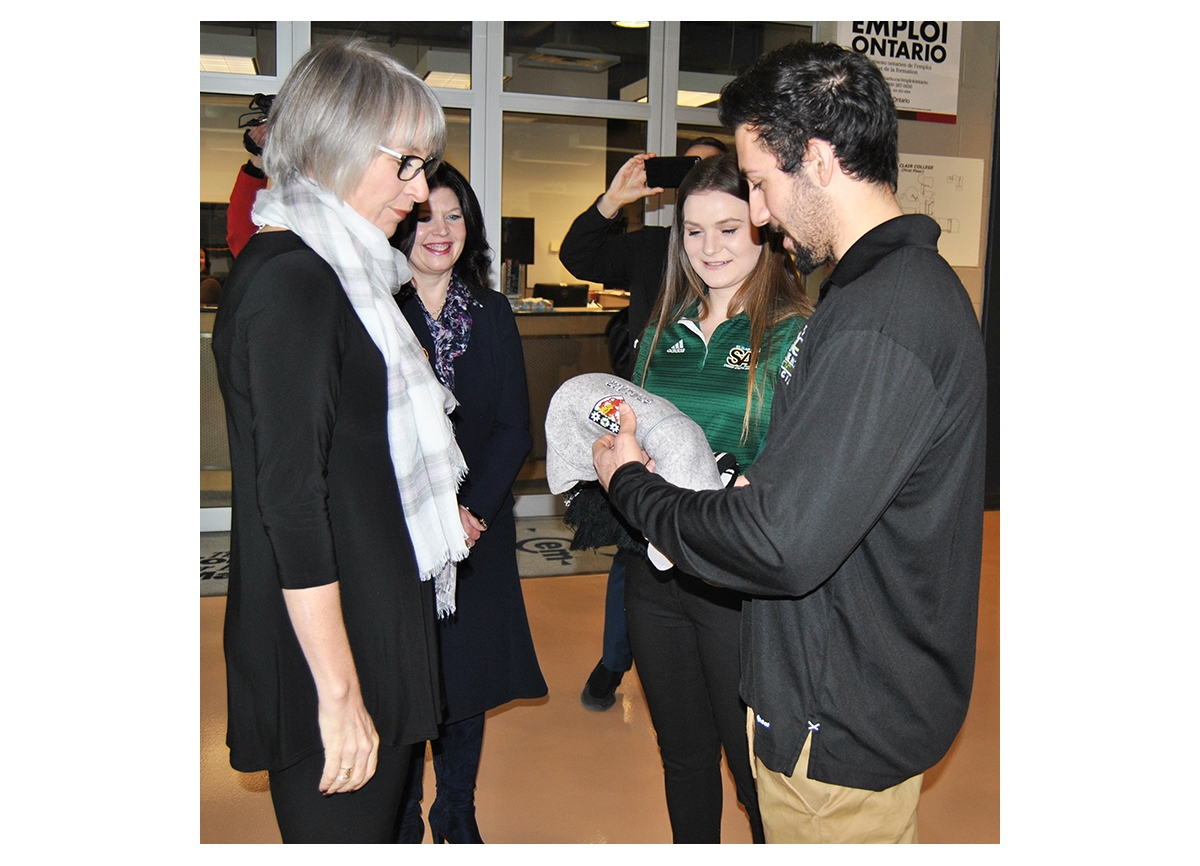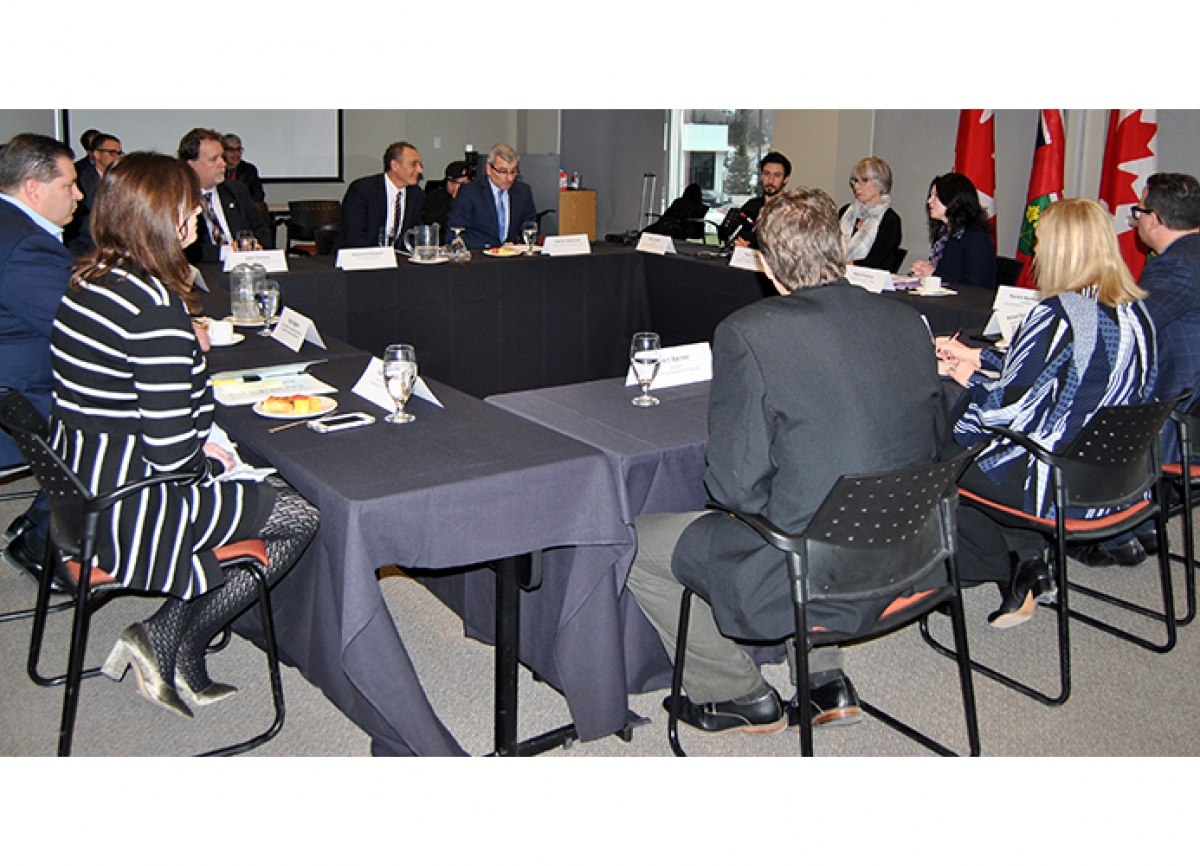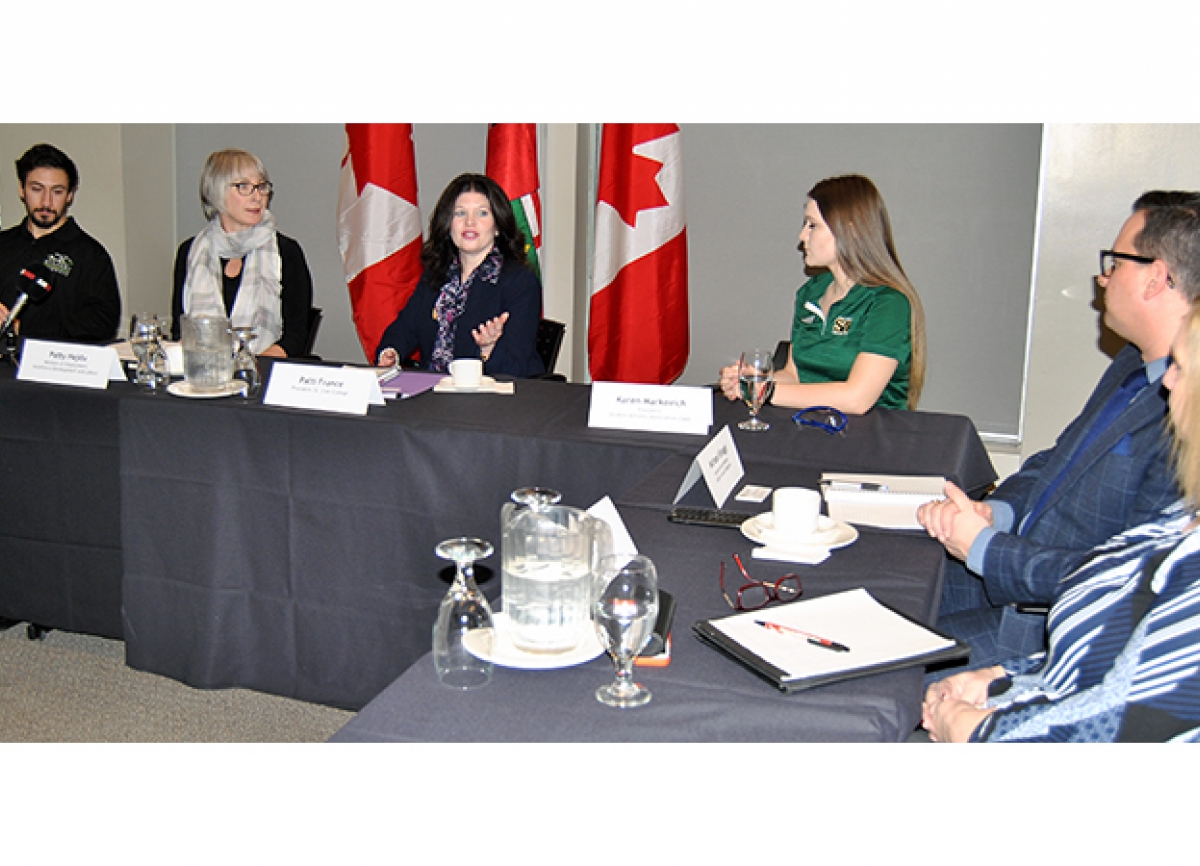
Patty Hajdu, the federal Minister of Employment, Workforce Development and Labour, used the backdrop of St. Clair’s Ford Centre for Excellence in Manufacturing (FCEM) today (January 24) to make a funding announcement that will thrill “mature students” – and to give Canada a “Skills Boost”.
She announced that students who are eligible for the Canada Student Grant for Full-Time Students, and who have been out of high school for at least ten years, will receive an additional $1,600 per school year ($200 per month) in “top-up” funding.
An estimated 43,000 low- and middle-income Canadians will benefit from the top-up funding in the 2018-2019 academic year.
Furthermore, under the federal pilot project, working and unemployed Canadians whose employment situation has significantly changed from the previous year can see their current income used to assess Canada Student Grant eligibility. This flexibility will ensure that those who experience a drop in income are not automatically disqualified for assistance based on their previous year’s earnings.

A ministry press release expanded:
“Skills Boost includes several measures announced in Budget 2017 that will be available for the school year beginning this fall, as part of a $287.2 million three-year pilot project …
“… Skills Boost also means expanded access to Canada Student Grants for part-time students and students with dependent children, to further break down financial barriers to postsecondary education. These measures are expected to benefit Canadian women in particular, who often strive to improve their career prospects while balancing family responsibilities. Women represent nearly two-thirds of the Canada Student Loans Program’s part-time recipients, while approximately four out of five students receiving the Canada Student Grant for students with dependent children are women.
“Support is also coming this fall for Canadians who find themselves out of work and want to go back to school. Today, if an unemployed worker is receiving Employment Insurance (EI) benefits, they may lose their eligibility for those benefits if they return to school or undertake training, which interferes with their availability for work, without the necessary referral from designated authorities. Starting in fall 2018, an unemployed person will be able to go back to school to get the training they need to find a new job — without fear of losing the EI benefits he/she needs to pay rent and buy groceries.”

“As an adult learner myself, who went back to school as a single Mom of two children, I know that adult learners can face challenges to pursuing postsecondary education — not only because of the cost of education itself but also because of the financial pressures and time constraints of supporting our families,” Hajdu said. “Our government has Canadians covered, no matter their circumstance — whether they are going to college or university for the first time, returning to school, or upgrading their skills.”
"Mature students have become an increasingly significant portion of St. Clair's enrolment during the past decade or so," said St. Clair College President Patti France. "Many of them come to us with challenging circumstances as they pursue their educations. They often need to brush up on new technology and techniques before commencing their studies, many of them are raising families, and many of them are also attempting to accommodate part-time or even full-time jobs in their complicated lives.
“This new, extremely generous assistance offered by the federal government will ease many of the pressures on these students. And providing them with a more affordable and accessible education will ultimately improve their lives in immeasurable ways."
Hajdu’s visit kicked off with a tour of the FCEM’s ABB Robotics lab. There, students demonstrated a line of robotic arms they had programmed – which picked up and waved Canadian flags and posters welcoming the Minister to the college.
Subsequently, to both make the funding announcement and discuss other issues pertaining to adult education, she sat down in a round-table sessions attended by France; student leaders Nick Goran, President, Student Representative Council (SRC) and Karen Markovich, President, Student Athletic Association (SAA); John Fairley, Vice-President, College Communications and Community Relations; Waseem Habash, Vice-President Academic; Ron Seguin, Vice-President, International Relations, Training and Campus Development; Michael Silvaggi, Associate Vice-President, Student Services and Registrar; Juli Vlaminck, Financial Aid Officer; Art Barron, Manager, Youth Development Programs (oversees adult dual credit program); Randal Semeniuk, Chair, School of Community Studies (oversees Literacy and Basic Skills/Academic and Career Entrance programming); and Karen Gill-Gore, Associate Vice-President, Employment and Training Services. Also participating was Rose Anguiano Hurst, Executive Director of the area’s Women's Enterprise Skills Training, which annually enrols several dozen women in pre-apprenticeship trades training at the college.

MORE MINISTRY INFO
• The pilot project top-up grant funding will be prorated based on the length of the study period. For example, those registered for an eight-month school year will receive $1,600, while those registered for a 12-month school year will receive $2,400. This funding will be provided on top of any other grants the student qualifies for.
• Using a working or newly unemployed Canadian’s current income rather than the previous year’s earnings means they could become eligible for income-tested Canada Student Grants, including up to $3,000 for the Canada Student Grant for Full-time Students, as well as the top-up funding.
• To receive Canada Student Grants, students must apply to their province or territory of residence to receive financial assistance for the 2018–19 school year. For example, as of November 8, 2017, students in Ontario can start applying to the Ontario Student Assistance Program (OSAP) to receive both provincial and federal assistance for the 2018–19 academic year. Students who have already applied for OSAP will be eligible for this funding.
• The top-up funding is available to full-time students pursuing an undergraduate degree, certificate or diploma of at least two years in duration at a designated postsecondary institution who have been out of high school for at least 10 years.







